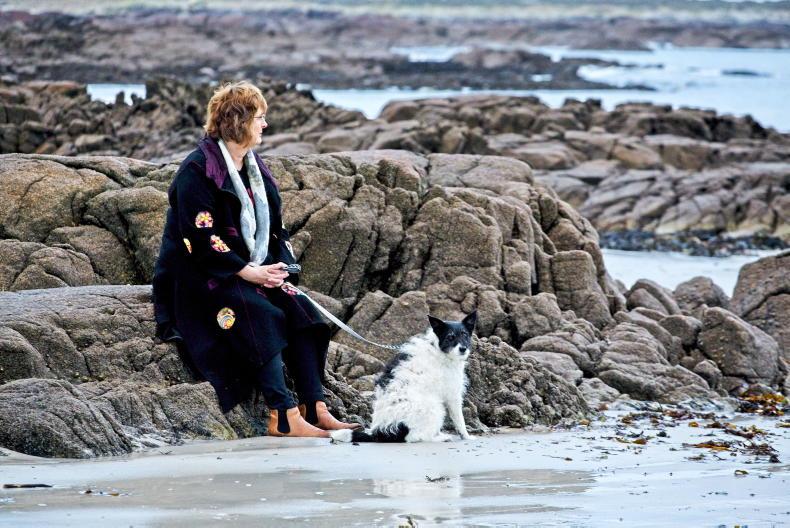When you get back from school I need you to stand in the gap while I move the sheep!”
What child growing up on a farm hasn’t been asked to stand in a gap? It’s one of the many things that happen on a farm which makes those of us who were raised on one slightly different to our non-farming cousins.
Even those who didn’t enjoy farming would stand in gaps, do the herding and - at a push - help with dosing or similar. I’ve always said the best thing about living on a farm was there was something to do, so you were never bored. However, the worst thing about living on a farm was there was always something to do - so growing up, you often thought you were working when all your friends were having the craic.
Recently, Denis O Brien (owner of Digicel) said he likes to hire culchies; stating that those living on a farm watch their parents trying to eke out a living, so they understand commerce. He may have a point, but I think in general, those raised on a farm have - to quote Liam Neesan - a “particular set of skills”.
Let’s start with a sense of responsibility. Growing up on a farm, you will - at various stages - be responsible for caring for animals and perhaps crops. I’ve seen our children, from a very young age, take responsibility for pet lambs that needed to be bottle fed or watering the tunnel of vegetables. These jobs also teach them resilience. Farming can be tough and, despite their best efforts, sometimes lambs die. It’s a hard lesson, but they’ll be back feeding the next when it needs it.
Farming is hard work and most raised to it remember long days and evenings working in all weather. As part-time farmers, Saturday was our busiest day and despite thinking longingly of friends still in bed, we were always up and out first thing. The kids and I were chatting about this recently, and they all agreed that they can’t sleep in on Saturday mornings, even if they have nothing on, as they still feel it would be a waste of a day.
Working together on the farm as a family definitely encourages teamwork. Dosing sheep worked better with one filling the dosing gun for John while another would mark them as they were done. Yet another would be catching and holding them in the pen. Working together like this was a practical way to understand the concept that teamwork can give great results.
I think one of my most-loved traits embedded in our children is their connection with nature and our natural environment. Although they now live in cities, they all love to get to green spaces. They also have a great understanding of the environment and the impact our actions have on it. Tied to this is the appreciation they have for local food - where it comes from and the effort it takes to produce it. Once, when we had visitors and one was complaining about the price of Irish asparagus, my daughter was not behind the door; telling him you only start getting a decent crop four years after planting.
When they were in college, they were possibly the best-fed students as they went back every Sunday night with a bag of organic steaks and chops from our freezer and fresh vegetables. Now when they shop, they have an appreciation for good quality, locally-produced, sustainable food. One is even growing his own vegetables in an allotment in the middle of Vancouver, in Canada, and another works in the area of sustainable energy production.
Other skills I think we develop when raised on a farm include problem solving and innovation (there’s always something to fix) and time management (ask any part-time farmer with a full-time job).
Obviously, not everyone raised on a farm will develop all the skills above, but for many the unique environment of living on a farm can facilitate the development of important, life-long skills - even if it’s just knowing how to stand in a gap!
Read more
Margaret Leahy: an island of islands
Margaret Leahy: we can WhatsApp, but there is nothing to beat being together
When you get back from school I need you to stand in the gap while I move the sheep!”
What child growing up on a farm hasn’t been asked to stand in a gap? It’s one of the many things that happen on a farm which makes those of us who were raised on one slightly different to our non-farming cousins.
Even those who didn’t enjoy farming would stand in gaps, do the herding and - at a push - help with dosing or similar. I’ve always said the best thing about living on a farm was there was something to do, so you were never bored. However, the worst thing about living on a farm was there was always something to do - so growing up, you often thought you were working when all your friends were having the craic.
Recently, Denis O Brien (owner of Digicel) said he likes to hire culchies; stating that those living on a farm watch their parents trying to eke out a living, so they understand commerce. He may have a point, but I think in general, those raised on a farm have - to quote Liam Neesan - a “particular set of skills”.
Let’s start with a sense of responsibility. Growing up on a farm, you will - at various stages - be responsible for caring for animals and perhaps crops. I’ve seen our children, from a very young age, take responsibility for pet lambs that needed to be bottle fed or watering the tunnel of vegetables. These jobs also teach them resilience. Farming can be tough and, despite their best efforts, sometimes lambs die. It’s a hard lesson, but they’ll be back feeding the next when it needs it.
Farming is hard work and most raised to it remember long days and evenings working in all weather. As part-time farmers, Saturday was our busiest day and despite thinking longingly of friends still in bed, we were always up and out first thing. The kids and I were chatting about this recently, and they all agreed that they can’t sleep in on Saturday mornings, even if they have nothing on, as they still feel it would be a waste of a day.
Working together on the farm as a family definitely encourages teamwork. Dosing sheep worked better with one filling the dosing gun for John while another would mark them as they were done. Yet another would be catching and holding them in the pen. Working together like this was a practical way to understand the concept that teamwork can give great results.
I think one of my most-loved traits embedded in our children is their connection with nature and our natural environment. Although they now live in cities, they all love to get to green spaces. They also have a great understanding of the environment and the impact our actions have on it. Tied to this is the appreciation they have for local food - where it comes from and the effort it takes to produce it. Once, when we had visitors and one was complaining about the price of Irish asparagus, my daughter was not behind the door; telling him you only start getting a decent crop four years after planting.
When they were in college, they were possibly the best-fed students as they went back every Sunday night with a bag of organic steaks and chops from our freezer and fresh vegetables. Now when they shop, they have an appreciation for good quality, locally-produced, sustainable food. One is even growing his own vegetables in an allotment in the middle of Vancouver, in Canada, and another works in the area of sustainable energy production.
Other skills I think we develop when raised on a farm include problem solving and innovation (there’s always something to fix) and time management (ask any part-time farmer with a full-time job).
Obviously, not everyone raised on a farm will develop all the skills above, but for many the unique environment of living on a farm can facilitate the development of important, life-long skills - even if it’s just knowing how to stand in a gap!
Read more
Margaret Leahy: an island of islands
Margaret Leahy: we can WhatsApp, but there is nothing to beat being together









SHARING OPTIONS